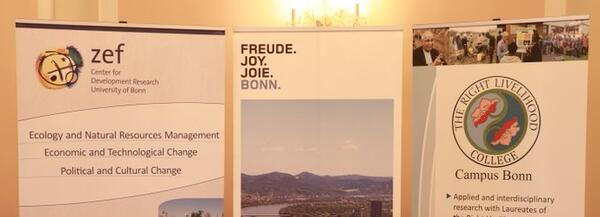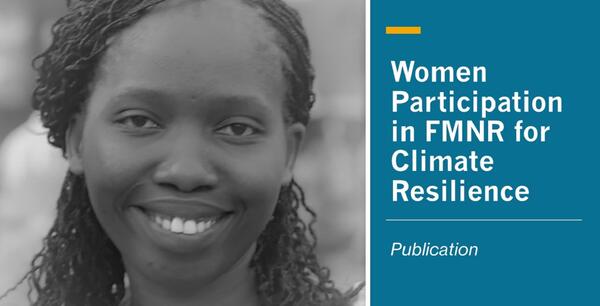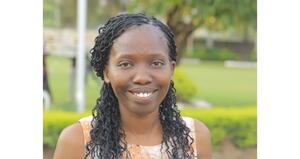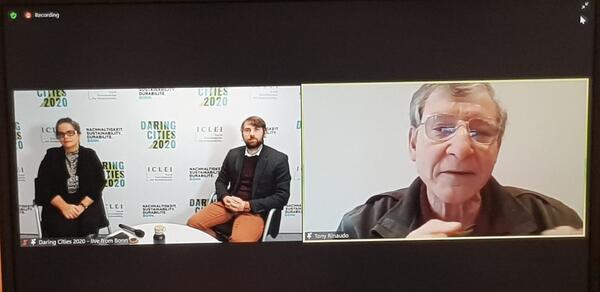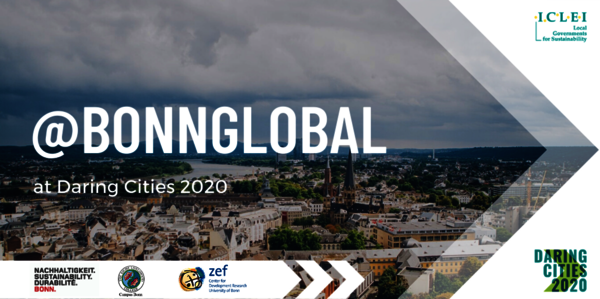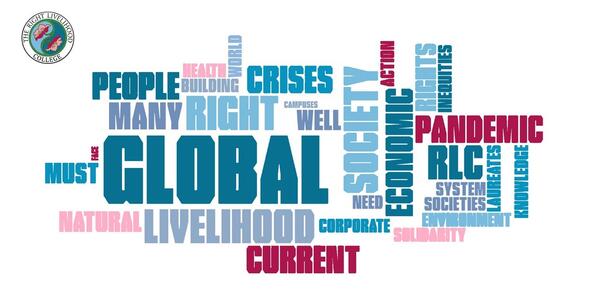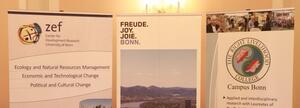The Right Livelihood College (RLC) is a multicultural, plural and global capacity building initiative of universities and the Right Livelihood Foundation. Since 2009, the RLC aims to make the knowledge and work of Laureates of the Right Livelihood Award accessible to all through linking academic work with grass-roots activism and cross-cultural learning around the world. With the following statement the signing RLC Campuses share their reflections on the current global crises.
A situation of urgency
The Covid-19 pandemic has brought unprecedented hardships for many people around the globe, exposing the flaws in our current globalised economic and political system and the existing societal structural inequities. The virus has exposed the structural weaknesses of our public health system, especially in relation to the most marginalised and vulnerable people – refugees, migrants, daily labourers, women and others. The overexploitation of natural resources, the destruction of natural habitats and ecosystems and the overall disregard for nature’s inherent value, that cannot be grasped in economic terms, lie at the root of many interconnected crises: the current pandemic, destruction of our natural environment, the loss of biodiversity, global injustice and more.
Thus, the Covid-19 pandemic is not a singular, isolated event, but acts as a catalyst for many of these pre-existing crises, further widening the inequalities in society. It cannot be solved by isolated means and much less by unproportional measures aimed at safeguarding corporate interests rather than people’s health and livelihoods, further hurting the poorest and weakest members of society. Most important of all, the pandemic has been used as a pretext by some governments to institutionalise authoritarianism and emergency decrees that violate the rights of civil society activists, journalists, students and human rights advocates in many countries.
There is a need to rethink how things are done
The acuteness and urgency of these crises exhort us to pause and revisit our ways of living, of organising societies and our relationship to nature. The utilitarian misconception of so-called free markets that dominates the current economic system and guides policy making has shown great deficits when it comes to creating a just and peaceful world. The most urgent problems that humankind is facing cannot be solved by applying the very same ways of thinking that lie at their root causes. Economic growth cannot and should not serve as a dominant political paradigm in the same way that narrow economic indicators should not be the only measure for the well-being of societies.
We are witnesses to an alarming growth of inequality
We live in a global system based on over-consumption and extreme wealth on the one hand, and strategic exploitation of people and the environment on the other. In the globalised world, the poor all too often bear the burden of the rich and their standard of living. Many ongoing practices show a contempt for these problems and the rights of future generations, amongst others: the privatisation of public goods and services; prioritisation of corporate interests over people’s well-being; financial speculation with the only goal of short-term profits; the destruction of natural ecosystems and habitats that will inevitably lead to further pandemics; culmination of power and economic wealth in the hands of a few.
Set new priorities
Such relations of power, inequalities and dependencies can no longer be ignored or perpetuated. The measures that some states deployed in the face of the Covid-19 crisis show that, given the political will, swift and far-reaching action is possible to face a crisis. As the question of our handling of such crises is a question of global justice and the well-being of all humankind, the systemic threats outlined above must be taken more seriously in our responses and leaders must be held accountable to the people.
Human Rights must be prioritised over corporate rights, a clean and safe environment over corporate profits. Questions of public health cannot be tackled without recognising the strong link to the issues described above. Mental health problems must no longer be marginalised, but rather recognised as an important factor for the well-being of a society.
While the above issues demand taking action to find lasting solutions, it is equally important to refrain from activities that have produced them in the first place or are making them worse. The dominant paradigms of success and productivity are a heavy burden on many people. Non-productivity, just as non-consumption, must also be a valid option.
The stories we tell
The way we think about such issues are key. Our imagery of society and nature forms our beliefs about what it means to lead a good life, to have success and true wealth. The stories we tell will shape our societies and the world of tomorrow. We do not live as isolated individuals, but are part of societies and natural environments. A good and broad education enables us to reflect and cherish the richness, diversity and complexity of life. But the pandemic has laid bare the glaring inequalities embedded in societal and educational systems worldwide.
Taking the commitment further: A call for Global Action
The RLC network recognises that there are no easy solutions to the challenges outlined above. We are committed to create the possibilities for all humankind, current and future generations, to pursue a Right Livelihood. We have endeavoured towards building a global knowledge network focussing on collective reflexivity of thought and action. This innovative space of knowledge across the Global South and Global North emerges from a synergy between the activism of the Laureates, the academic and field endeavours of the RLC campuses. We thus propose the following from our commitment to Right Livelihood and the implicit understanding of social justice, social inclusion, solidarity, solidarity economics and environmental sustainability as mentioned above.
Our reflexive thoughts and suggestions have a twofold aim: A) reaching governments, international organizations, civil society groups, movements and people in general and B) building a collective and co-produced global knowledge as emerging from the RLC and Laureates’ research and practice. To this end, we hold three points to be vital.
- Understanding the interrelationships between society, economy, polity and environment and to act on the same. The need of the hour is not to look at development alternatives but alternatives to the paradigms of development. The work of the Laureates and the RLC explicates this path.
- Building global solidarities. There is a need to focus on solidarity networks to ensure the spirit of cooperation and solidarity within and between nations, communities and groups for a more sustainable future and global justice.
- Strengthening local practices and being mindful of diversity and inequities. There is a need to focus on non-hierarchical and inclusive local and innovative practices. This is to ensure social value creation for well-being at one end and addressing the structural inequities that leads to manifestation of inequities and injustice (as is being experienced during the current pandemic) on the other.
Signatories of the RLC network
Prof. Dato’ (Dr.) Anwar Fazal, Director Right Livelihood College
Dr. Victor Karunan, RLC Special Advisor Bangkok
RLC Campus Bangkok, represented by Hans van Willenswaard
RLC Campus Bonn, University of Bonn, represented by Dr. Till Stellmacher
RLC Campus Lund, Lund University Centre for Sustainability Studies (LUCSUS), represented by Dr. Elina Anderson
RLC Campus Mumbai, Tata Institute of Social Sciences (TISS), represented by Prof. Dr. Swati Banerjee
RLC Campus Port Harcourt, University of Port Harcourt, represented by Dr. Fidelis Allen
RLC Campus Santa Cruz, University of California, represented by David Shaw
RLC Campus Valdivia, Universidad Austral, represented by Prof. Dr. Felix Fuders
Contact
Dr. Till Stellmacher
Coordinator Global Secretariat, Right Livelihood College
t.stellmacher(at)uni-bonn.de
Center for Development Research (ZEF)
Genscherallee 3, 53113 Bonn, Germany
Alexander Repenning
Education Manager, Right Livelihood Foundation
alexander.repenning(at)rightlivelihood.org
Maison de la Paix Chemin Eugène-Rigot 2E, Building 5
1202 Geneva, Switzerland
Download the statement as PDF here.


